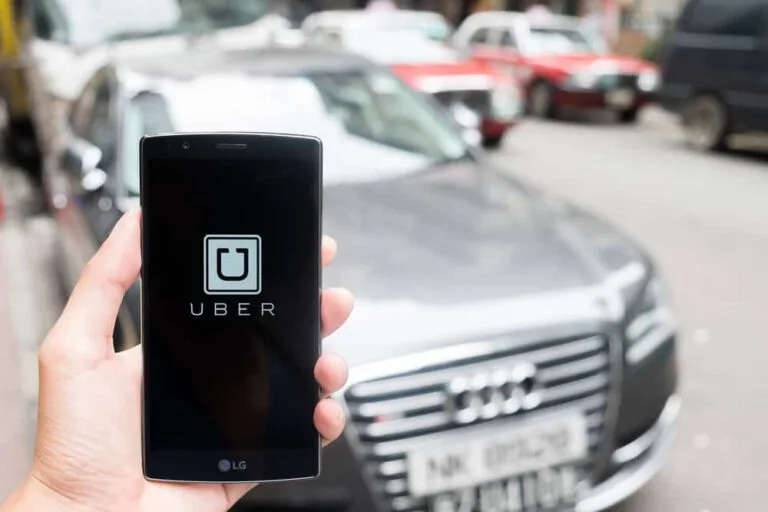When you’re a rideshare driver, insurance coverage can be confusing. You may be wondering if you can use your regular car insurance policy, if Uber or Lyft will completely cover you, or if you might be liable in the case of an accident. Read on to find out everything you need to know about insurance requirements for rideshare drivers.

The Rideshare insurance gap
Rideshare firms require their drivers to carry accident insurance, but what they often don’t tell their contractors is that an insurance gap exists on standard personal auto insurance policies. Standard personal policies often exclude coverage if the driver is carrying passengers for hire. Although rideshare companies like Uber and Lyft indicate that they have insurance, it’s not always clear when those policies are activated and what they cover. Therefore, a very real insurance gap often exists for drivers who work for these companies, putting both drivers and passengers at risk for high costs.
Uber has a $1 million liability policy that covers drivers. However, coverage is denied if the accident falls under two of the scenarios in its three-part insurance plan.
- If a driver is not available, in other words on personal time and not logged into the Uber app, the driver’s own insurance must be used if an accident occurs.
- Under the second scenario, where a driver is in between rides and logged onto the app without a passenger, personal insurance must be used first.
When available and carrying a passenger is the only situation in which Uber’s $1 million policy can be invoked, covering the driver, the passengers, and a third party. However, Uber can still deny the claim. Injured passengers can still sue the driver directly. Uber allows usage of additional insurance through the company, however, it’s only available by request.
Lyft has a similar insurance policy that covers drivers and passengers with a $1 million excess liability policy. The rideshare company also covers collisions by uninsured and underinsured motorists and has match coverage to help drivers with costs of individual injuries and property liability resulting from an accident. Like Uber, Lyft is also known for trying to sidestep accident claims. Recently though, some courts have begun to rule that it is no longer acceptable to consider rideshare drivers independent contractors, and as a result, they have been ruling in favor of claims submitted by drivers more often.
Protection from accident claims (Uber, Lyft)
Rideshare drivers who cause accidents could be responsible for paying costs such as repairs to their own vehicle along with other damages incurred due to the accident if the driver is found to be at fault. Uber and Lyft drivers may also end up paying for damage caused by uninsured and underinsured motorists, as well as expenses usually covered under comprehensive, collision and other optional coverages.
In order to best protect yourself from accident claims as a rideshare driver, you should know the steps to take if an accident occurs.
- First of all, you should remain calm and check to see if everyone in the vehicle(s) is okay.
- Drivers should stay with their vehicle through all police and cleanup proceedings.
- Thoroughly document everything that happened during the incident for rideshare and personal insurance in order to maximize chances of being covered.
- Drivers should contact their insurance company and the insurance company of the other vehicles involved in the accident.
Finally, one of the most important things to do following a rideshare accident is to retain the services of an attorney as insurance claims can be more than tricky. A lawyer can help maximize a rideshare driver’s chances of receiving compensation for accident damages. They can also assist in minimizing the accident’s impact on your driving record.
Before working as an independent contractor for a rideshare company, drivers should make sure that their personal auto policies have as much coverage as possible to protect them when taking on paying customers. Look for personal automobile policies that provide gap insurance for rideshare driving. Some insurance carriers offer a personal extension that gives drivers the same coverage while doing rideshare work.
Another option is a hybrid insurance policy that can replace personal auto insurance with a rideshare-friendly plan. At minimum, make sure your insurance does not include language about excluding coverage if you work as a professional driver. If the insurance purchasing process is confusing, there are many resources online where you can compare insurance plans. Simply search for “insurance comparison rideshare drivers” and browse the information available in order to make an informed decision and protect yourself.
Disclaimer: No Legal Advice Intended
The contents of this Article are intended to convey general information only and not to provide legal advice or opinions. The contents of this article, and the posting and viewing of the information on this website, should not be construed as, and should not be relied upon for, legal or tax advice in any particular circumstance or fact situation. The information presented in this Article may not reflect the most current legal developments. No action should be taken in reliance on the information contained in this Article and we disclaim all liability in respect to actions taken or not taken based on any or all of the contents of this site to the fullest extent permitted by law. An attorney should be contacted for advice on specific legal issues.
Author: Blake Ledbetter is an Uber accident lawyer at Conoscienti & Ledbetter. Ledbetter possesses significant experience with Uber/Lyft accident lawsuits and a range of legal issues involving rideshare drivers and riders. Conoscienti & Ledbetter are a team of dynamic and engaging lawyers, with the ability to help on a wide-range of both civil and criminal legal issues.


